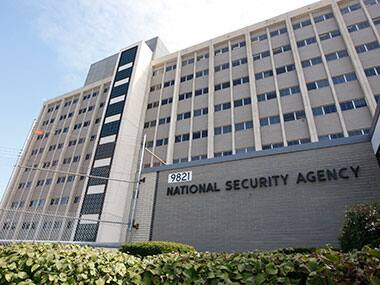In a revelation, The Guardian, has revealed that NSA’s data mining and surveillance was not just limited to the US but extended to other countries as well, including India. The paper which has acquired top-secret documents about the NSA datamining tool, called Boundless Informant says that the programme allowed the US to mine data according to countries and even maps countries according to the volume of information that was being collected. According to the Guardian, the data includes both computer and telephone networks. The report says, Under the heading “Sample use cases”, the factsheet also states the tool shows information including: “How many records (and what type) are collected against a particular country.” It seems India was number 5 on the list of surveillance according to the map. The report reveals that: Iran was the country where the largest amount of intelligence was gathered, with more than 14bn reports in that period, followed by 13.5bn from Pakistan. Jordan, one of America’s closest Arab allies, came third with 12.7bn, Egypt fourth with 7.6bn and India fifth with 6.3bn. Meanwhile the Indian government has also responded to the report saying that it would be “unacceptable” if it is discovered that Indian laws on privacy have been violated by the surveillance launched on web users worldwide by the US National Security Agency (NSA). “If it is discovered that Indian laws relating to privacy of information of ordinary Indian citizens have been violated we would find it unacceptable,” external affairs ministry spokesperson Syed Akbaruddin said at a media briefing, in answer to a query. [caption id=“attachment_864219” align=“alignleft” width=“380”]  National Security Agency in this file photo. AP[/caption] He said that India and the US have a cyber security dialogue that is helmed by the National Security Advisers from both sides. “We intend to seek information and details during the consultations between the interlocutors”, Akbaruddin said, adding that it is an evolving situation and India would see how the matter unfolds rather than jump to conclusions. Meanwhile US President Barack Obama has gone on record to defend the NSA surveillance program stating that it was ‘modest encroachment’ and that it was necessary to protect American lives. Obama was quoted as saying , “Nobody is listening to your telephone calls. That’s not what this program is about. In the abstract you can complain about Big Brother and how this is a potential program run amok, but when you actually look at the details, I think we’ve struck the right balance.” “You can’t have 100 percent security and also then have 100 percent privacy and zero inconvenience,” Obama said. “We’re going to have to make some choices as a society. … There are trade-offs involved.” Earlier today Google, Facebook, Twitter and Microsoft urged the US government for more transparency in publishing data requests. In a blog post Google said: We have always made clear that we comply with valid legal requests. And last week, the Director of National Intelligence acknowledged that service providers have received Foreign Intelligence Surveillance Act (FISA) requests. Assertions in the press that our compliance with these requests gives the U.S. government unfettered access to our users’ data are simply untrue. However, government nondisclosure obligations regarding the number of FISA national security requests that Google receives, as well as the number of accounts covered by those requests, fuel that speculation. We therefore ask you to help make it possible for Google to publish in our Transparency Report aggregate numbers of national security requests, including FISA disclosures—in terms of both the number we receive and their scope. Google’s numbers would clearly show that our compliance with these requests falls far short of the claims being made. Google has nothing to hide. Europe too has reacted strongly to the charges, with EU Justice Commissioner Viviane Reding saying she will be seeking clear commitments during Friday’s trans-Atlantic ministerial that EU citizens will be granted the same rights as US residents when it comes to data protection. While the debate between security versus privacy rages on, the fact that US government’s surveillance also extended to other countries complicates matters. It also raises of sovereignty and why India or in fact citizens of any other nation give up their privacy rights for American security.
In a new revelation, The Guardian, says that NSA’s data mining and surveillance was not just limited to the US but extended to other countries as well.
Advertisement
End of Article


)

)
)
)
)
)
)
)
)



